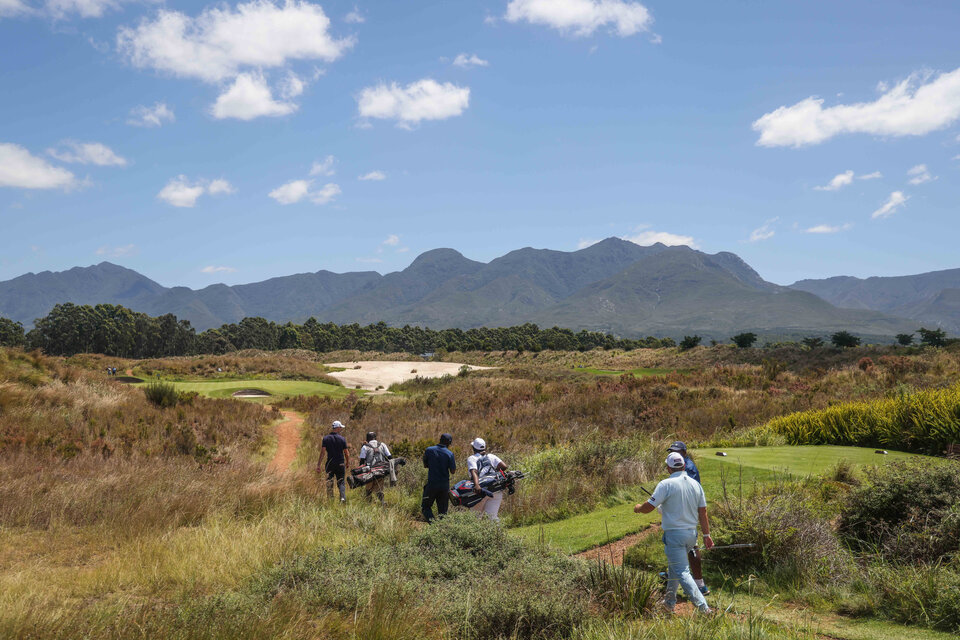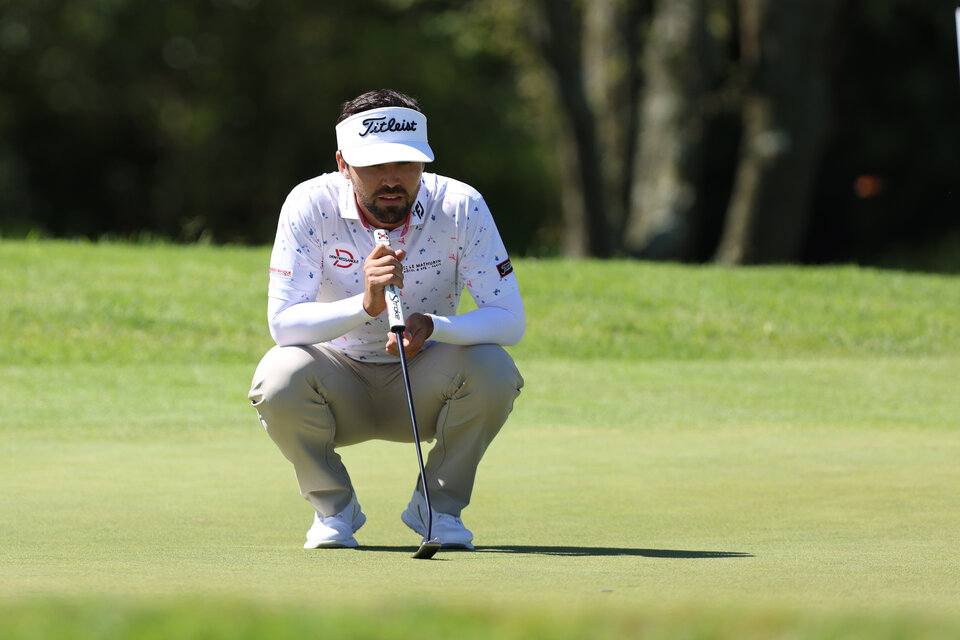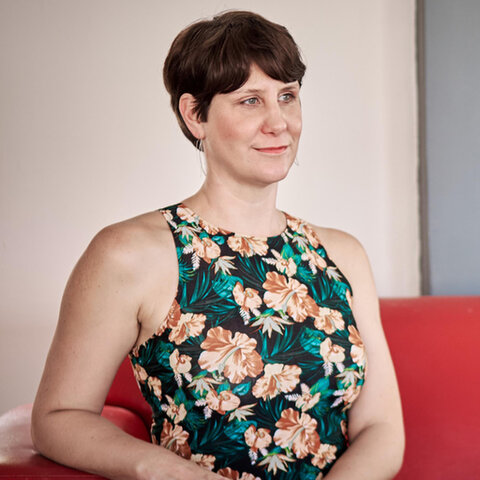
SCROLL DOWN
MIND & BODY

RESTORING HARMONY
Dr Kirsten van Heerden discusses golf and the art of work-life balance
The phrase “work-life balance” often conjures up images of perfectly portioned days: equal parts career, family, hobbies and rest. However, life rarely unfolds so neatly. For many, the demands of modern living – long working hours, family obligations and the constant buzz of digital notifications – make achieving balance feel like chasing a mirage.
THE ELUSIVE BALANCE
Let’s start with a reality check: balance doesn’t mean splitting time equally across all areas of life. Instead, it’s about aligning your priorities with your actions, ensuring no aspect of your life is neglected over the long term. Achieving a “balanced” life requires conscious effort and often entails recalibrating as circumstances evolve. It’s about mindfully choosing one aspect of life over another, and being aware of the consequences of that choice. Then, over time, it is about making adjustments and maybe focusing on a different area of life for a period of time.
For many people, their work tends to dominate their lives. It’s easy to justify – work pays the bills, offers a sense of purpose and is often deeply tied to our identity. However, an overemphasis on work can leave little room for personal health, relationships or leisure, leading to burnout and diminished well-being.

Rather than compartmentalising work, home and leisure into distinct silos, it’s possible to use skills and experiences from one role to enhance the others
MORE THAN BALANCE: ROLE INTEGRATION AND HARMONY
A key concept in achieving harmony (rather than balance) is recognising the permeability of roles in life. Rather than compartmentalising work, home and leisure into distinct silos, it’s possible to use skills and experiences from one role to enhance the others. For example, the patience and focus you cultivate on the golf course can improve your decision-making and resilience at work. Similarly, the problem-solving strategies you use at work can help you navigate challenges on the course.
This integration fosters a sense of coherence and purpose, allowing your roles to complement rather than compete with one another. Golf, with its blend of mental, social and reflective aspects, becomes a space where these roles can intersect, offering a way to recharge while reinforcing the skills needed in other areas of life.
LISTEN TO…
Dr Kirsten van Heerden chats to former England rugby player Tim Stimpson about his legacy, life after retirement from pro sport, finding happiness and living his values.

Studies show that spending time in nature reduces anxiety, improves mood and boosts overall mental health. Golf, therefore, becomes a gateway to the healing power of the outdoors
WHY GOLF?
Golf is as much a mental game as a physical one. It demands focus, patience and strategic thinking. Whether you’re planning your next shot or learning to let go of frustration after a poor shot, golf provides opportunities to practise mindfulness and emotional regulation. These skills don’t just make you a better golfer, they also translate into better handling of life’s stresses and challenges.
Humans are inherently social beings, and meaningful connections are crucial for well-being. Golf’s social aspect – playing in groups, sharing stories, and enjoying camaraderie on the course – helps build relationships and fosters a sense of belonging. For many, these moments of connection are the antidote to the isolation that can stem from a work-heavy life.
There’s something inherently soothing about being surrounded by nature. Studies show that spending time in nature reduces anxiety, improves mood and boosts overall mental health. Golf, therefore, becomes a gateway to the healing power of the outdoors.
INTEGRATING GOLF INTO YOUR ROUTINE
To reap the benefits of golf for work-life balance, it’s essential to approach the game with intentionality. Here are some practical tips:
- Treat your golf time as a non-negotiable appointment. Whether it’s a weekly round with friends or a quick visit to the driving range, carve out dedicated time for golf in your schedule. This commitment signals to yourself and others that your well-being is a priority.
- Golf, like life, is imperfect. You’ll have good rounds and bad ones, but what matters is enjoying the journey. Adopting this perspective can help shift your mindset in other areas of life, too, allowing you to approach challenges with more grace and resilience.
- The slower pace of golf creates a unique opportunity for self-reflection. Use the quiet moments between shots or holes to check in with yourself. Are you feeling overwhelmed? Content? Energised? This habit of introspection can help you identify when aspects of your life need attention.
- Why not use golf as a way to nurture relationships? Invite a colleague for a round to strengthen your professional rapport, or spend time with family and friends on the course. Combining leisure with connection ensures you’re addressing multiple aspects of balance simultaneously.
When you make space for activities like golf, the benefits ripple out into other areas of your life. Better mental health equips you to manage stress and make sound decisions. Stronger social connections provide a support network during tough times. And the simple act of prioritising your well-being sets a powerful example for those around you.
In a world that often glorifies overwork and constant hustle, finding balance and harmony can feel like swimming upstream. But the truth is, taking time for yourself isn’t indulgent; it’s necessary. So, the next time you find yourself overwhelmed by life’s demands, consider this: the solution might just be found on the fairway. Grab your clubs, head to the course and take a swing at restoring your harmony. It’s not just good for your game; it’s good for your life.

DID YOU KNOW?
GolfRSA has partnered with The R&A for a journey looking at the benefits of golf, with a highlighted theme each month. February’s #HealthyHabit is Golf is Good for Balance.
Explore the benefits of golf and why you should choose this sport as your #HealthyHabit for life. Research has shown that golf improves many physical and mental aspects including muscular strength, power, endurance and confidence. Golfers also benefit from green space and social interaction.
Join The Golf Mag and GolfRSA on social media and share how golf has been good for your health.
ABOUT THE AUTHOR
Dr Kirsten van Heerden is one of only a few people in South Africa to have represented her country as an athlete and hold a PhD in sport psychology. She has worked and travelled extensively within high performance sport for more than 15 years. She has published a book on the challenges athletes face when they retire from elite sport called Waking from the Dream and hosts her own podcast called ‘Behind the Dream’ where she talks with some of the world’s best athletes about the ups and downs of being a professional athlete. She is also the founder and chairperson of Girls Only Project – a non-profit company focusing on women in sport issues. She is in private practice at Newton Sports Agency.

@drkirstenvanheerden
www.newtonagency.co.za
@kirstvanh
Behind the Dream




IMAGES: EJ LANGNER/CARL FOURIE/SUNSHINE TOUR